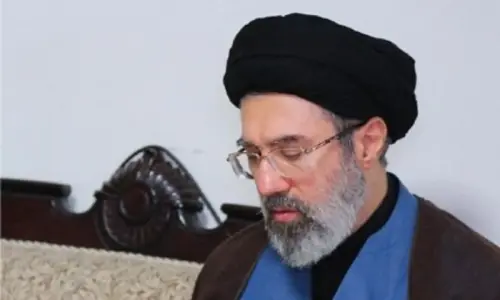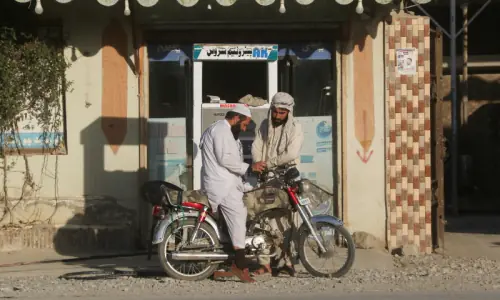WASHINGTON: The number of US troops in Afghanistan may drop well below 10,000 — the minimum demanded by the US military to train Afghan forces — as the longest war in American history winds down, Obama administration officials say.
Since Afghanistan’s general election on April 5, White House, State Department and Pentagon officials have resumed discussions on how many American troops should remain after the current US-led coalition ends its mission this year.
The decision to consider a small force, possibly less than 5,000 US troops, reflects a belief among White House officials that Afghan security forces have evolved into a robust enough force to contain a still-potent Taliban-led insurgency. The small US force that would remain could focus on counter-terrorism or training operations.
That belief, the officials say, is based partly on Afghanistan’s surprisingly smooth election, which has won international praise for its high turnout, estimated at 60 per cent of 12 million eligible votes, and the failure of Taliban militants to stage high-profile attacks that day.
The Obama administration has been looking at options for a possible residual US force for months.
“The discussion is very much alive,” said one US official. “They are looking for additional options under 10,000” troops.
There are now about 33,000 US troops in Afghanistan, down from 100,000 in 2011, when troop numbers peaked a decade into a conflict originally intended to deny Al Qaeda sanctuary in Afghanistan after the Sept 11, 2001, attacks.
With British and other foreign troops scheduled to depart in lock step with US soldiers, the size of any residual US force could add fuel to a debate in Washington over whether Taliban-led violence will intensify amid the vacuum left by Western forces, as some US military officials expect.
Military leaders, including American General Joe Dunford, who heads US and Nato forces in Afghanistan, has identified 10,000 soldiers as the minimum needed to help train and advise Afghan forces fighting the insurgency, arguing a smaller force would struggle to protect itself.
During a March visit to Washington, Gen Dunford told lawmakers that without foreign soldiers supporting them, Afghan forces would begin to deteriorate “fairly quickly” in 2015.
The Afghan air force, still several years away from being self-sufficient, would require even more assistance, he said.
A smaller US force could have other unintended consequences, possibly discouraging already sceptical lawmakers from fully funding US commitments to help fund Afghan forces.
At their current size, Afghan forces will cost at least $5 billion in 2015, a sum far beyond the reach of the Afghan government. The United States has been widely expected to be the largest outside funder for those forces.
The Taliban and other militants have been weakened by more than 12 years of Afghan and Nato assaults, but they still can obtain supplies and plan attacks from Afghanistan’s remote mountain regions and tribal areas of Pakistan.
Some analysts are wary of reducing the US presence to less than 10,000 troops.
“If the White House opts to keep a lower number of troops, it will put more pressure on the Afghan forces and run the risk of squandering their recent progress against the Taliban,” said Lisa Curtis, a former CIA analyst and State Department official now with the conservative Heritage Foundation, a think tank in Washington.—Reuters





























